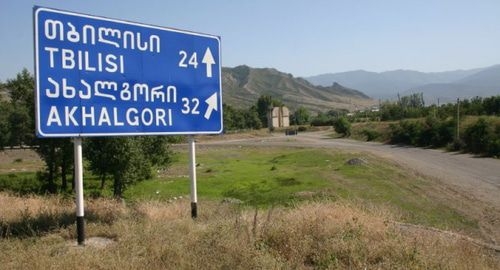NGOs Respond to Humanitarian Crisis in Akhalgori
The humanitarian situation is strikingly severe in Akhalgori (district in Tskhinvali) due to the closure of the only crossing point with the rest of Georgia on September 4, 2019, leaving around 1500 locals facing restrictions on free movement and a deficit in medicines and food.
"Georgia-based non-governmental organizations are deeply concerned about the deteriorating humanitarian crisis in Akhalgori, and we urge you to make use of all available resources to ensure future safety of the local population", reads the statement signed by 18 NGOs.
Recipients of the statement are: UN High Commissioner for Human Rights, Ms. Michelle Bachelet; Council of Europe Commissioner for Human Rights, Ms. Dunja Mijatovic; President of Freedom House, Michael Abramowitz; Executive Director Human Rights Watch, Mr. Kenneth Roth; EU Special Representative for the South Caucasus and the Crisis in Georgia, Mr Toivo Klaar, to name a few.
“We urge you to increase pressure on the Russian Federation as an effective control force in these territories, to immediately open the passage, to stop the illegal detention of civilians along the occupation line, and to allow international monitoring missions to enter the occupied territories unhindered”, reads the statement.
The de facto authorities of the Russia-occupied Tskhinvali region have temporarily allowed local pensioners (living in Akhalgori district) to visit the rest of Georgia to pick up their pensions. Following a five-month isolation, the pensioners, as well as people in need of urgent medical care will be allowed to temporarily leave the area. Even though this temporary opening of the border has benefited dozens of people, the civil sector considers these measures insufficient to eliminate the severe humanitarian crisis on the ground.
Russia’s ever-increasing control over the regions of Abkhazia and Tskhinvali is the main challenge for the integrity of Georgia.












